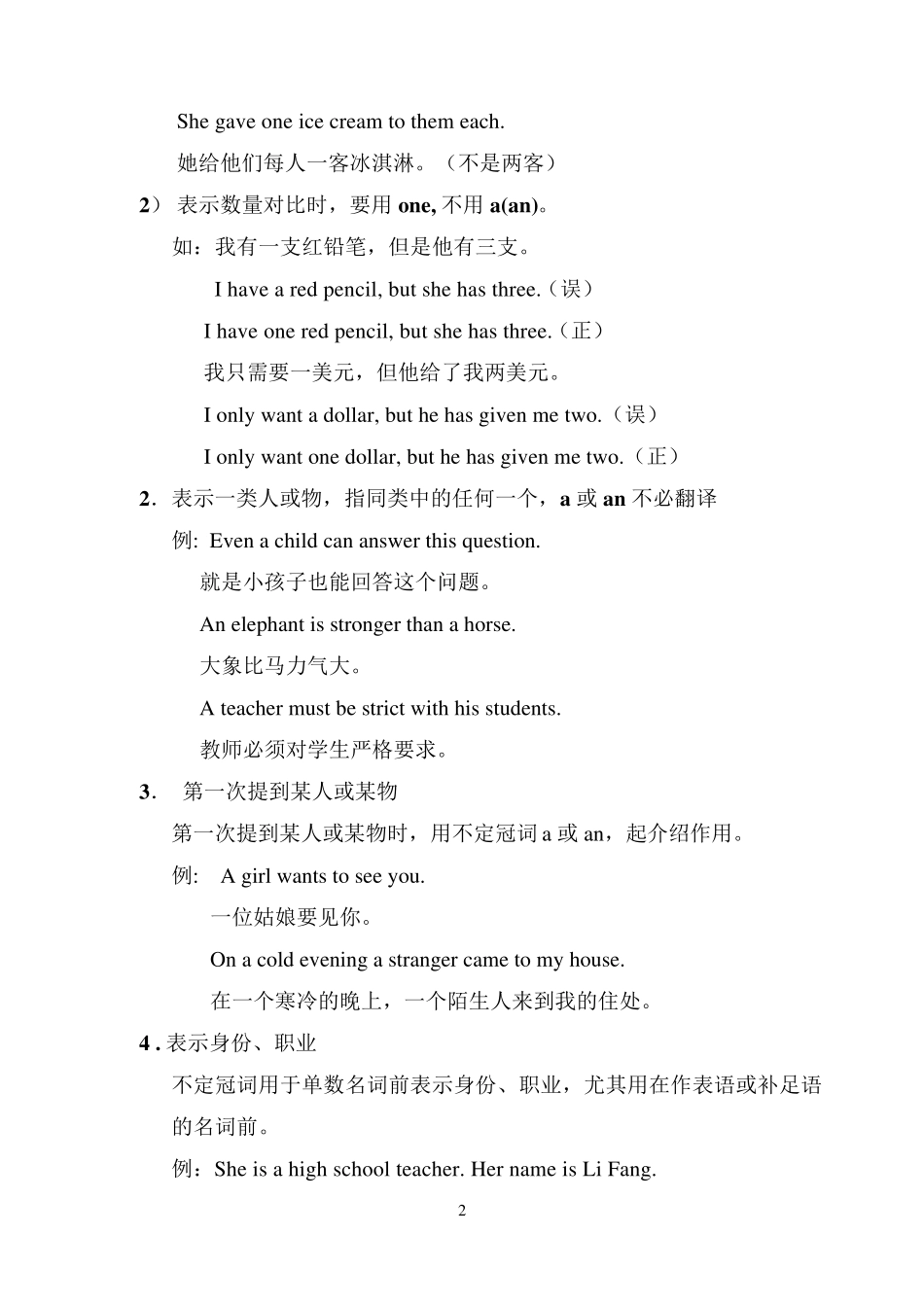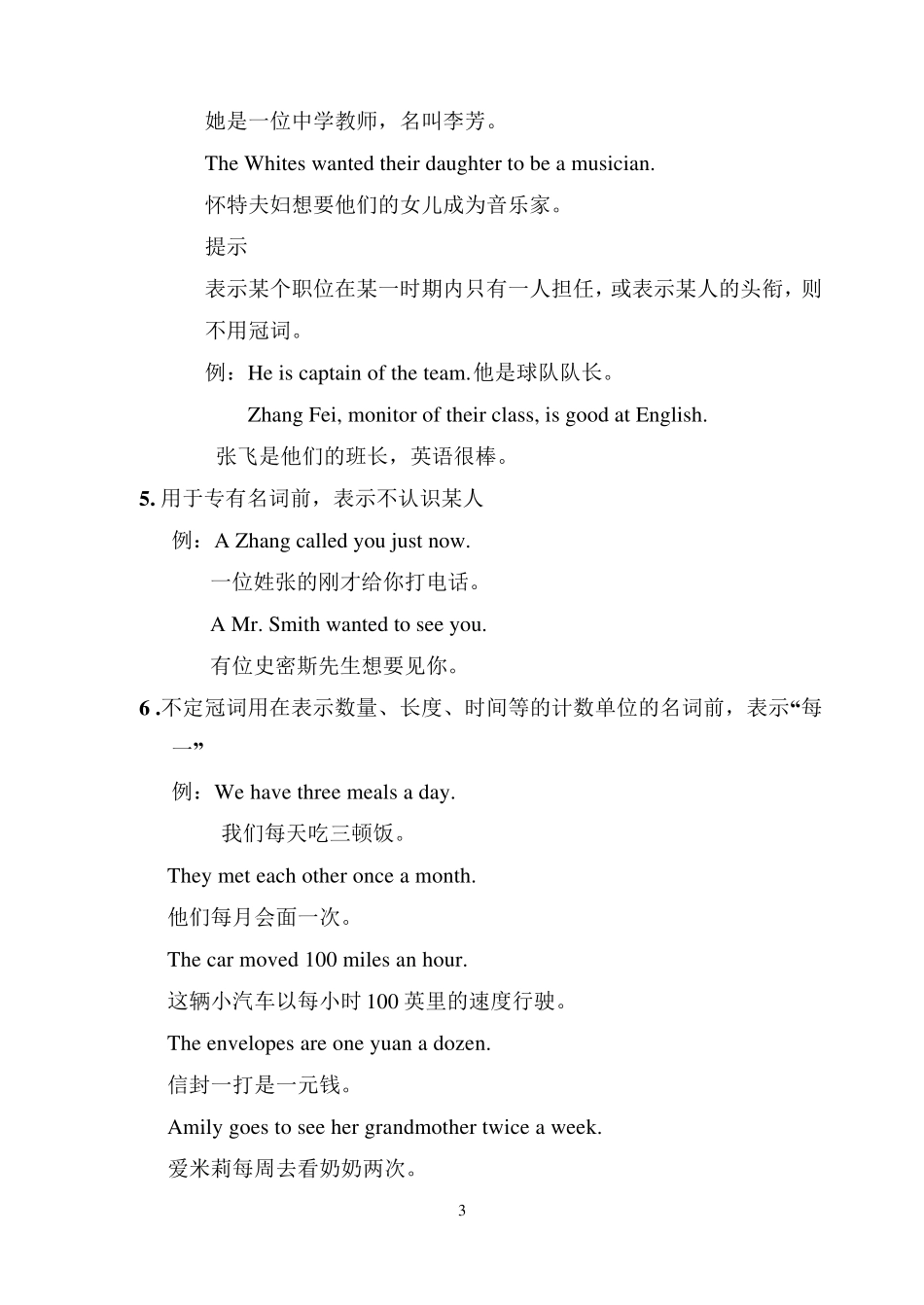1 冠词用法归纳 (March18, 2008) 一、a 与 an 的区别 a 用在辅音音素前,包括以前元音[j]、[w]开首的词前。注意,这里讲的辅音音素指的是发音,不是指辅音字母。 an 用在元音音素前(不是元音字母)。 例: a hotel 一家旅馆 ;a knife 一把小刀 ;a useful tool 一件有用的工具 ;a university 一 所 大 学 ; a European country 一 个 欧 洲 国 家 ; a one-eyed man 一个一目失明的人 ;an hour 一小时 ;an ant 一只蚂蚁; an honour 一种荣誉 ;an honest boy 一个诚实的男孩;an umbrella 一把伞 ; an onion 一 个 洋 葱 ; an eye 一 只 眼 睛 ; an ear 一 只 耳 朵 ;an English book 一本英语书;an egg 一只鸡蛋; an apple 一 个 苹 果 ; an island 一 座 岛 ; an uncle 一 位 叔 叔 ;an old man 一位老人;an elephant 一头大象 二、不定冠词的用法 1. 表示“一,一个”,用在单数可数名词前 There is a picture on the wall. 墙上有一幅图画。 He has an apple in his hand. 他手里拿着一个苹果。 提示 1) a (an) 虽表示“一个”,但不强调数量,而是强调类别;one 则强调数量。 例:I bought a computer. 我买了一台电脑。(不是收音机和电视机) I bought one computer. 我买了一台电脑。 (不是两台) Would you like an ice cream? 来一客冰淇淋好吗?(不是别的食物) 2 She gave one ice cream to them each. 她给他们每人一客冰淇淋。(不是两客) 2) 表示数量对比时,要用one, 不用a(an)。 如:我有一支红铅笔,但是他有三支。 I have a red pencil, but she has three. (误) I have one red pencil, but she has three. (正) 我只需要一美元,但他给了我两美元。 I only want a dollar, but he has given me two. (误) I only want one dollar, but he has given me two. (正) 2.表示一类人或物,指同类中的任何一个,a 或an 不必翻译 例: Even a child can answer this question. 就是小孩子也能回答这个问题。 An elephant is stronger than a horse. 大象比马力气大。 A teacher must be strict with his students. 教师必须对学生严格要求。 ...


